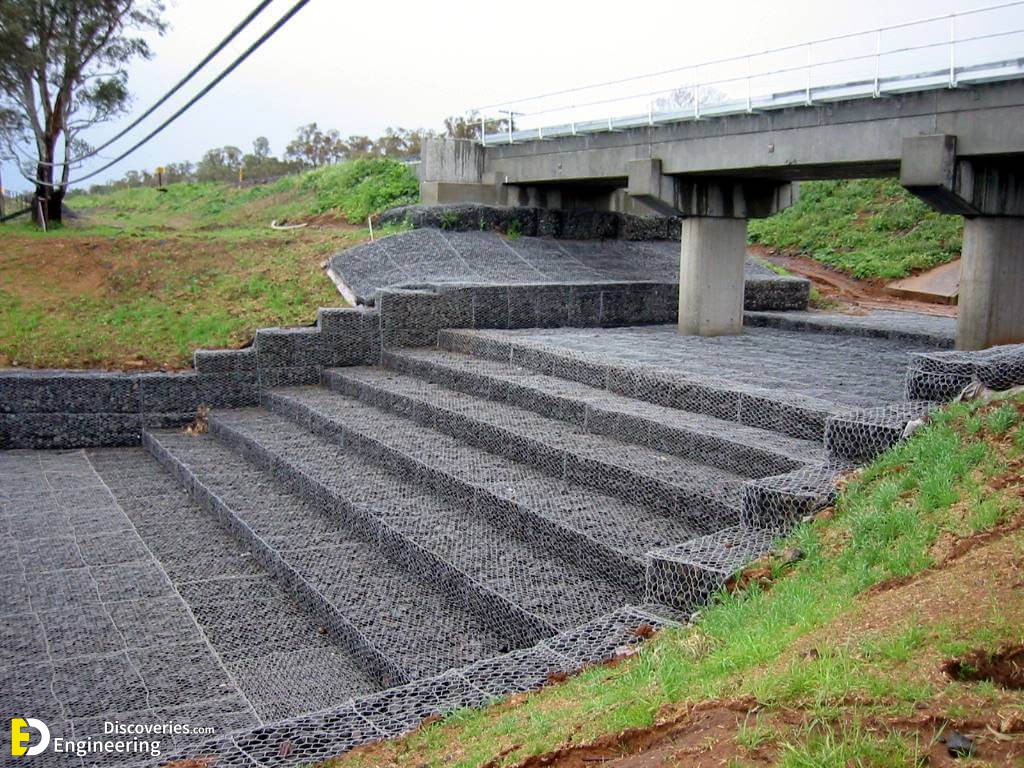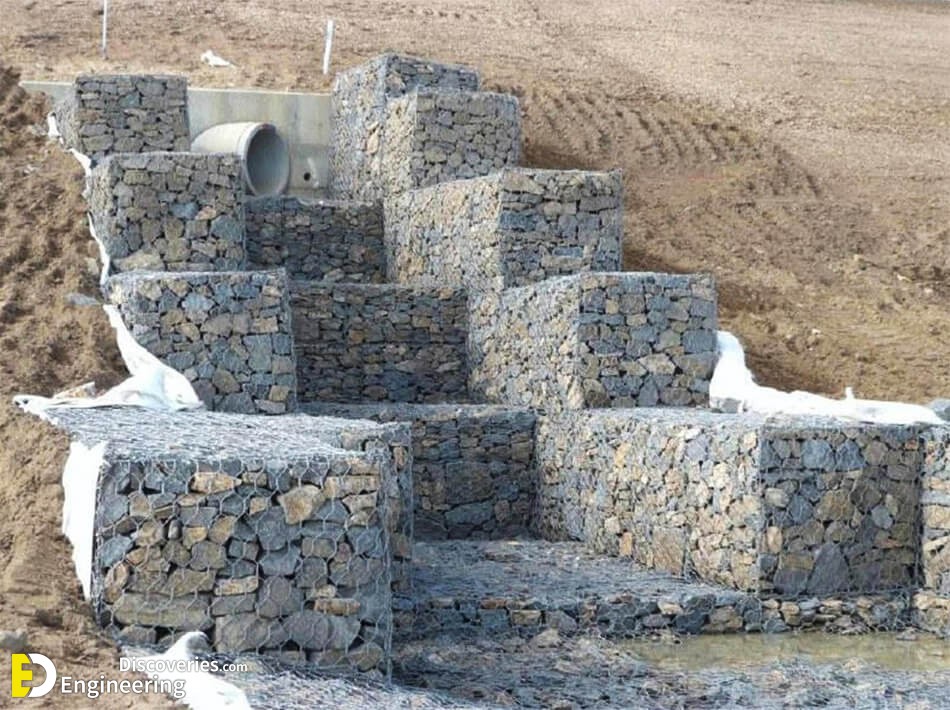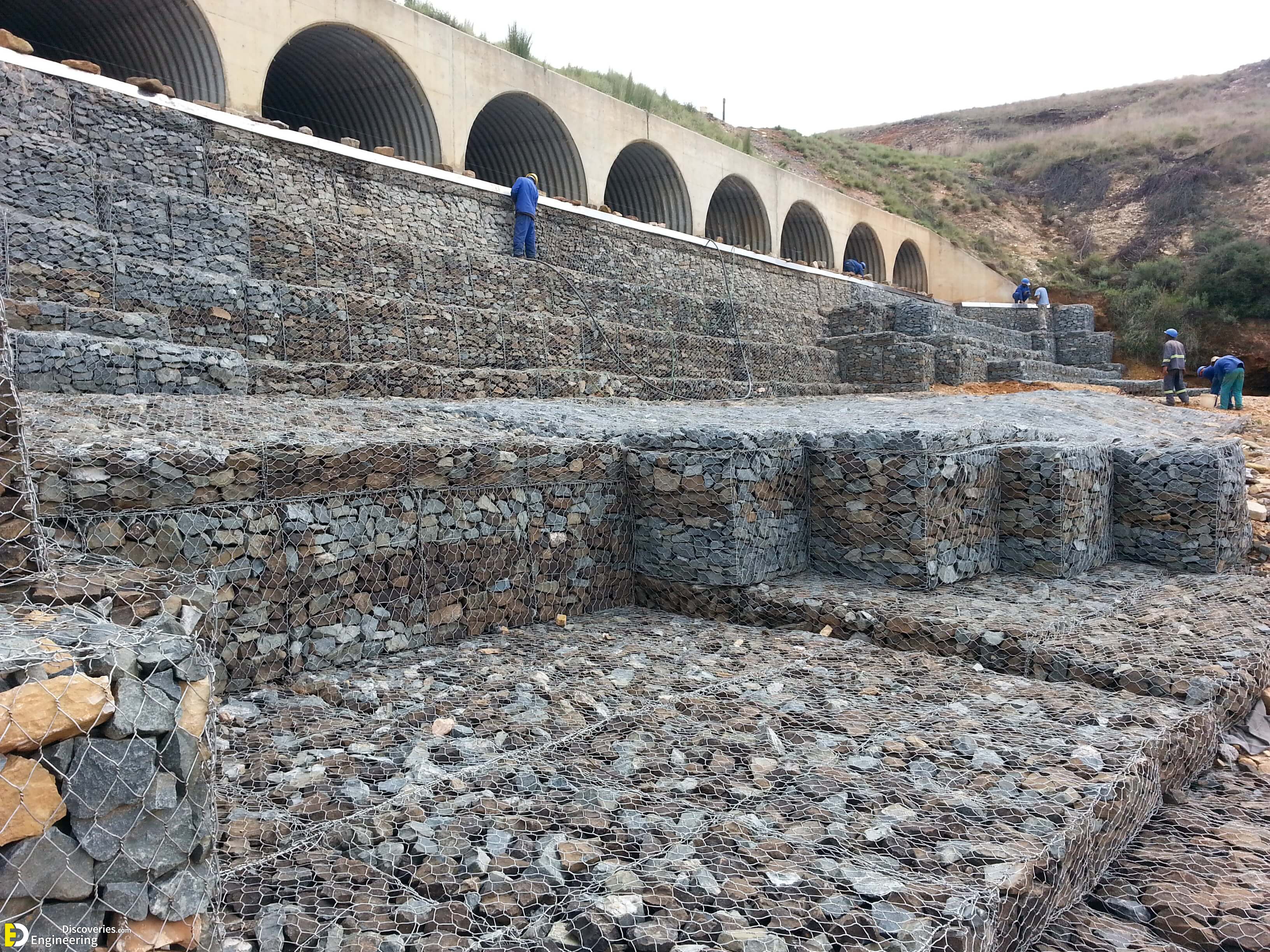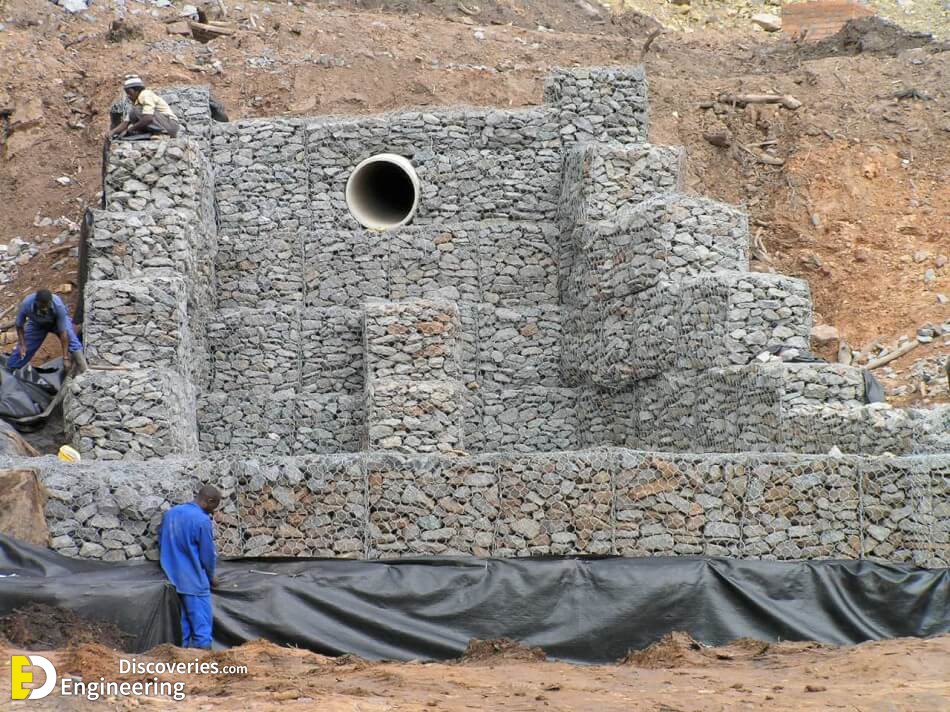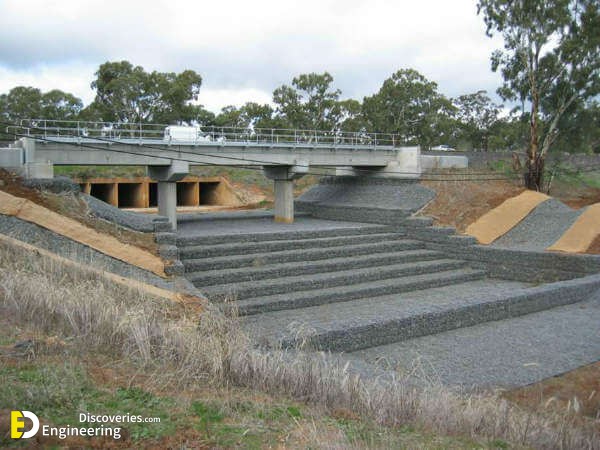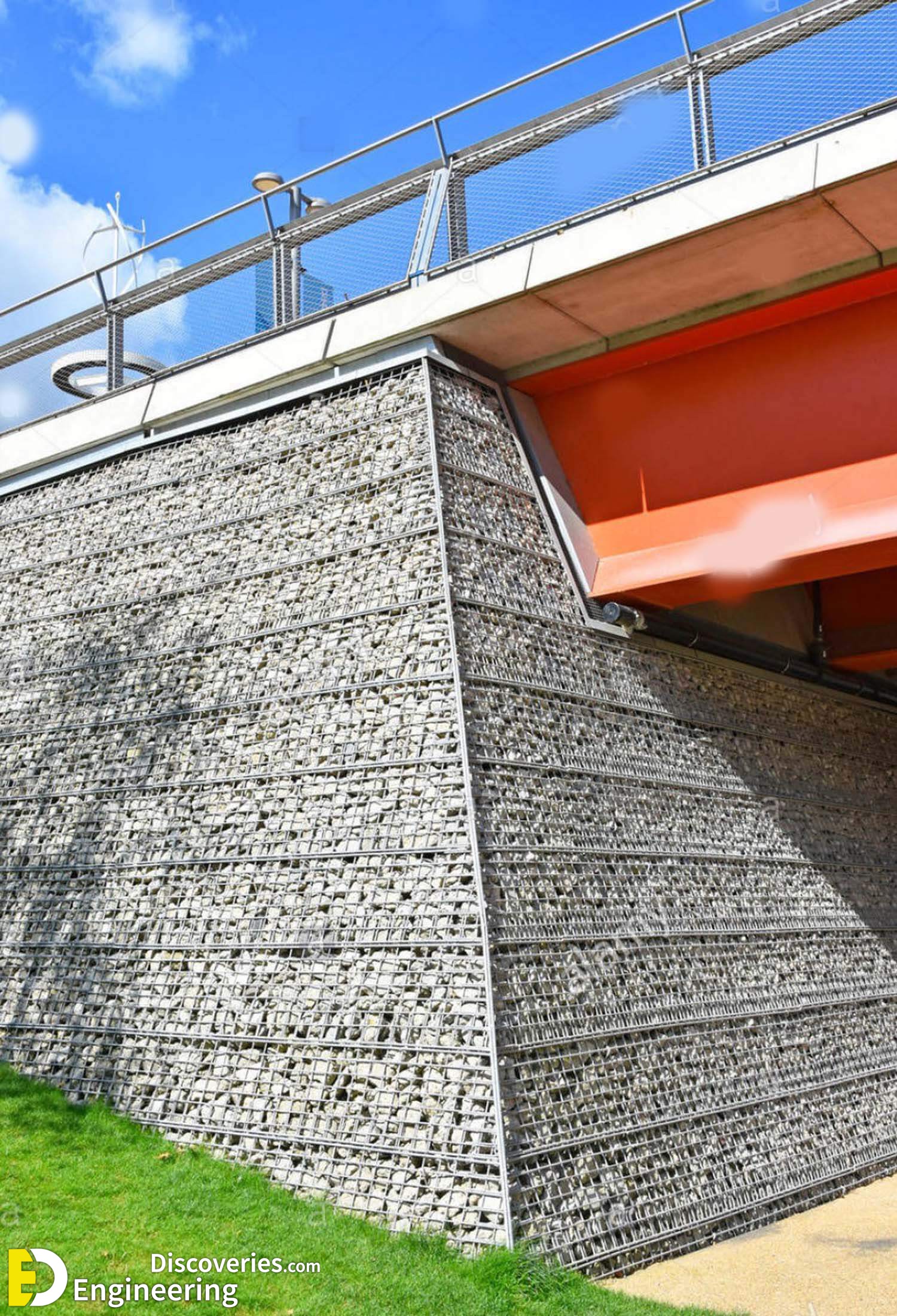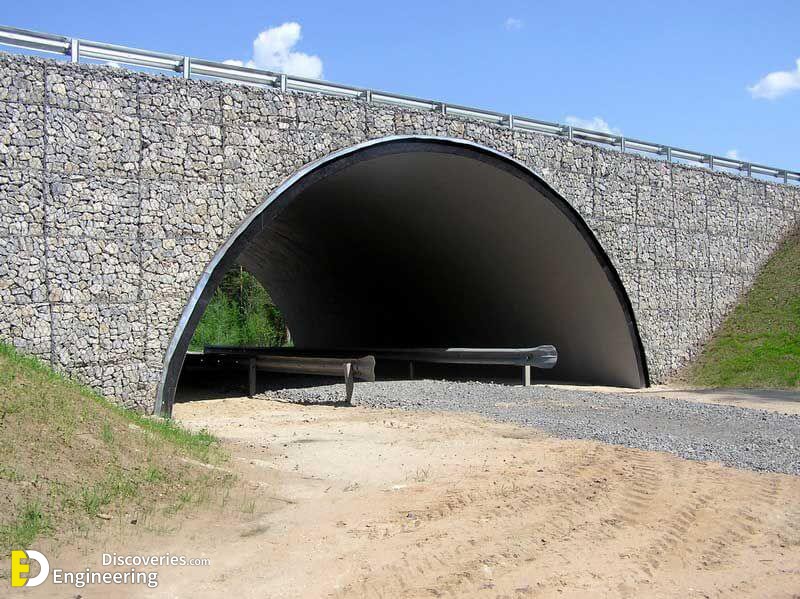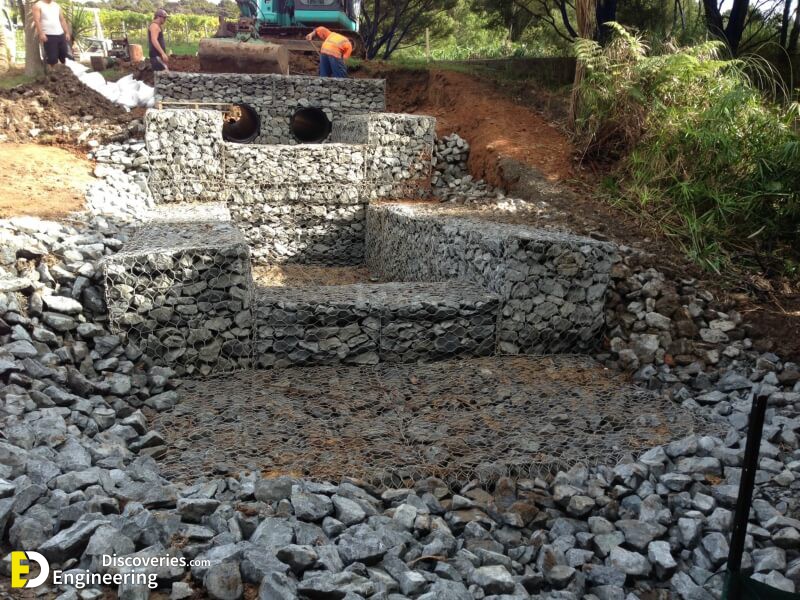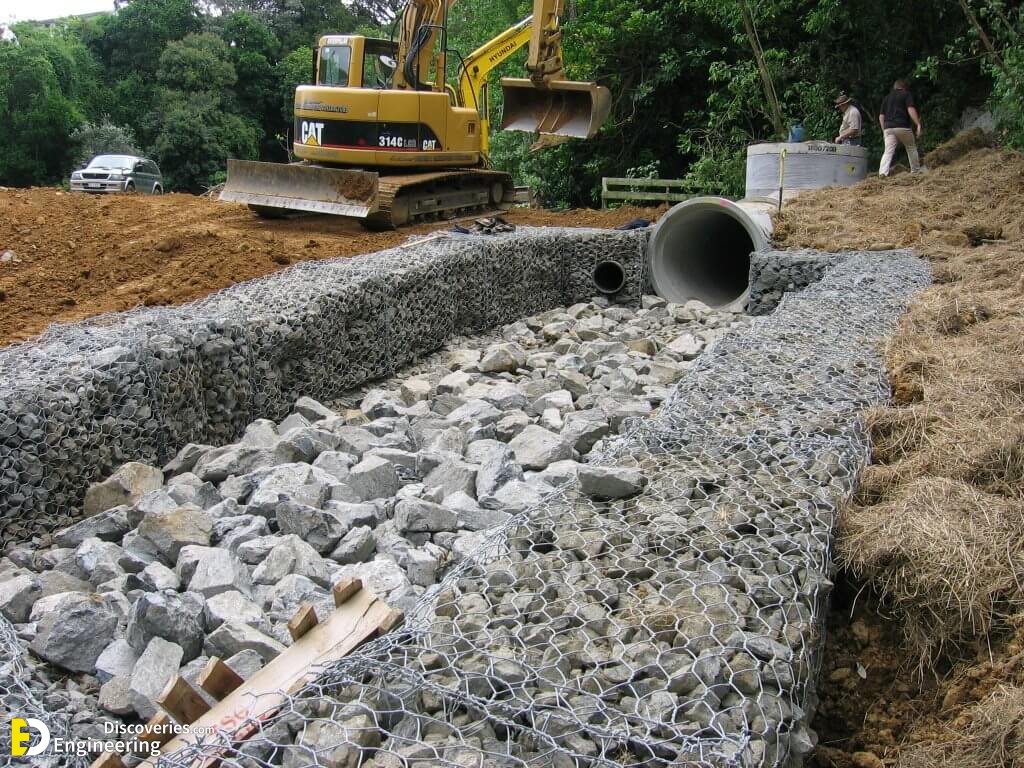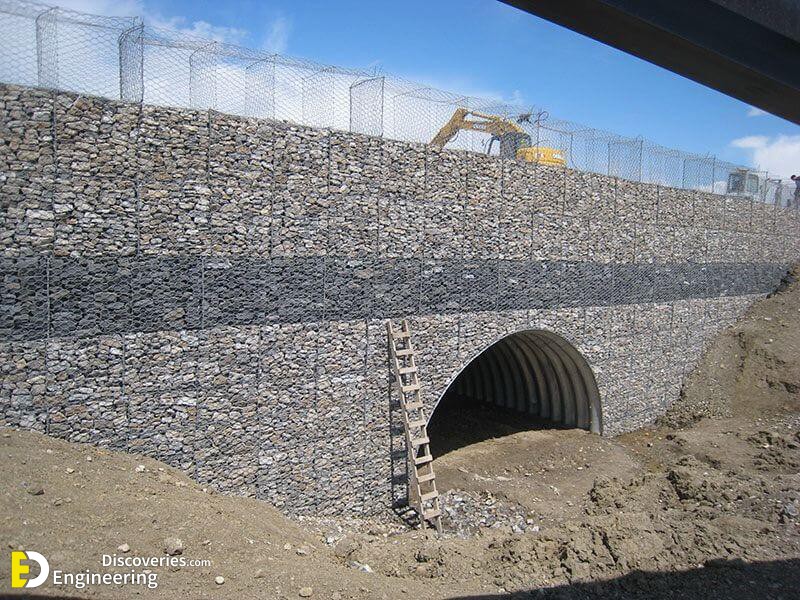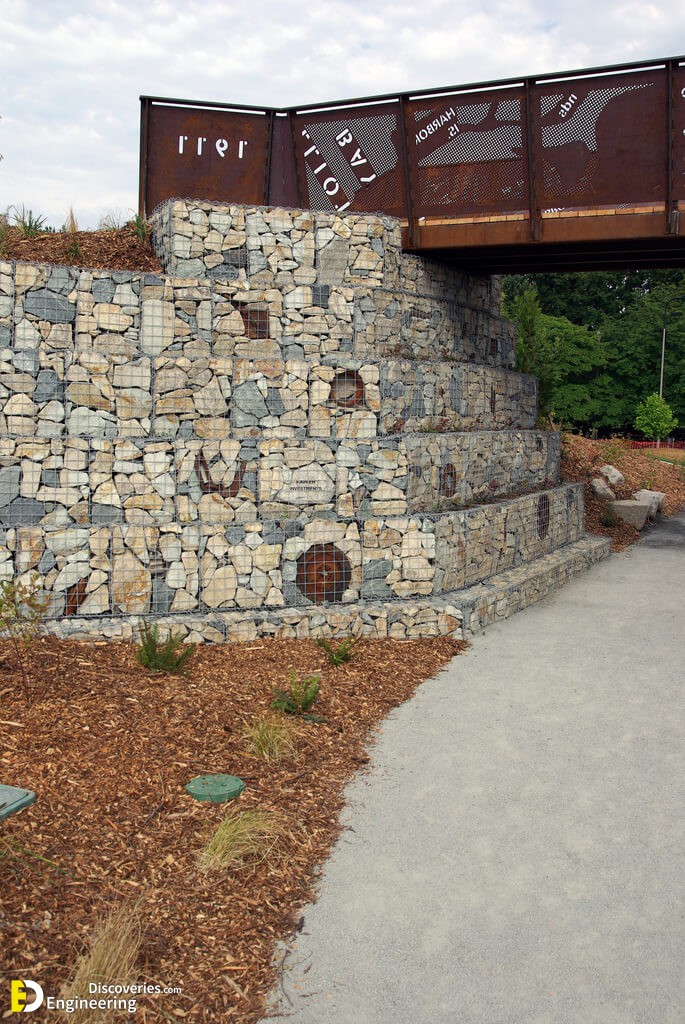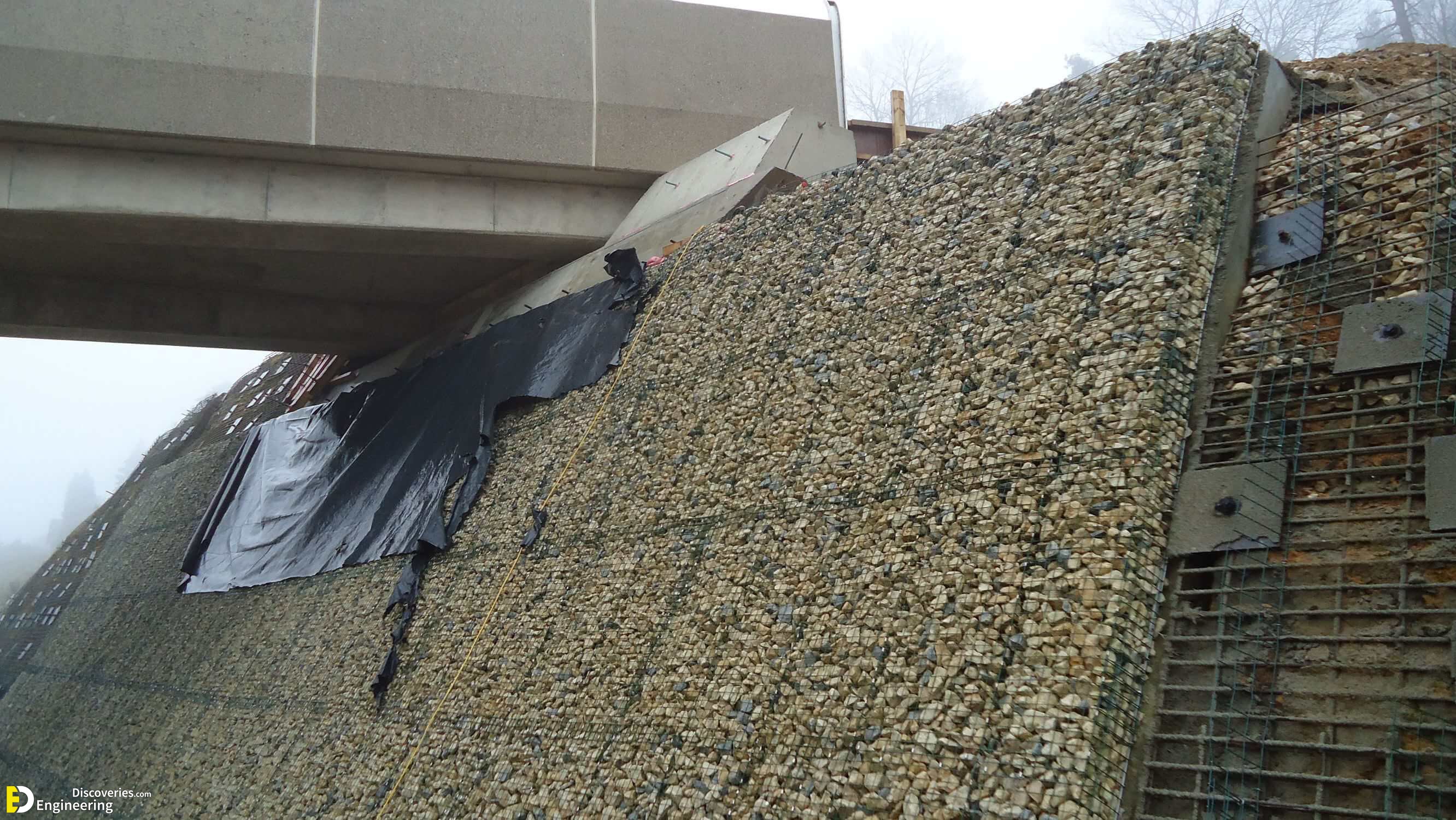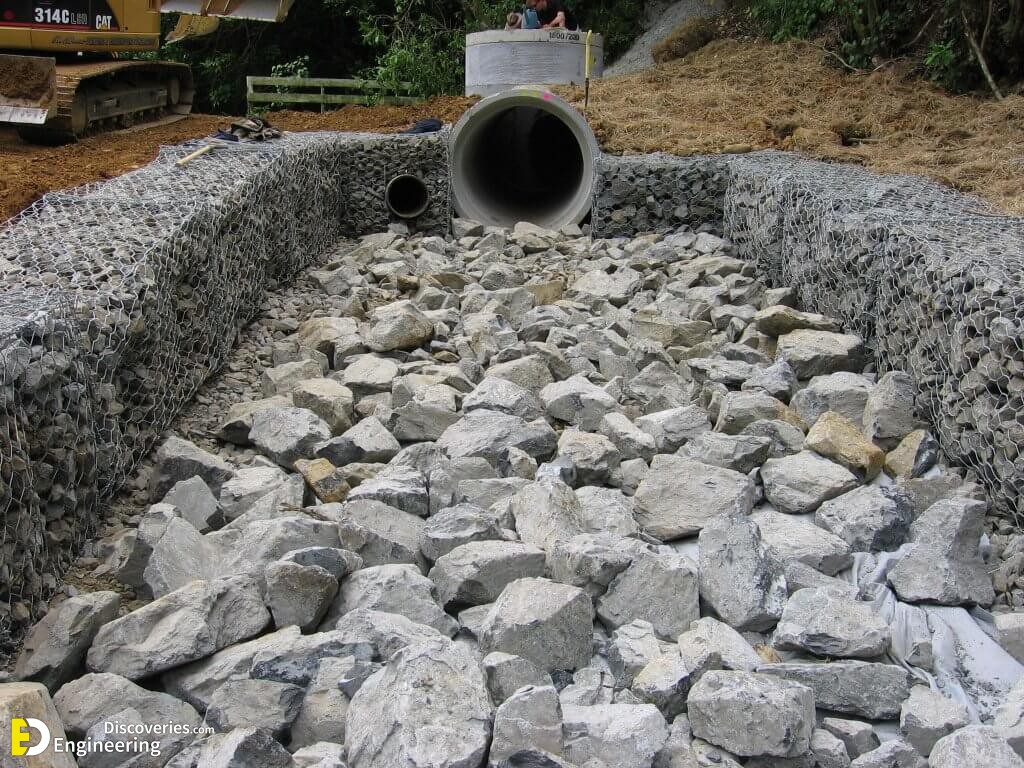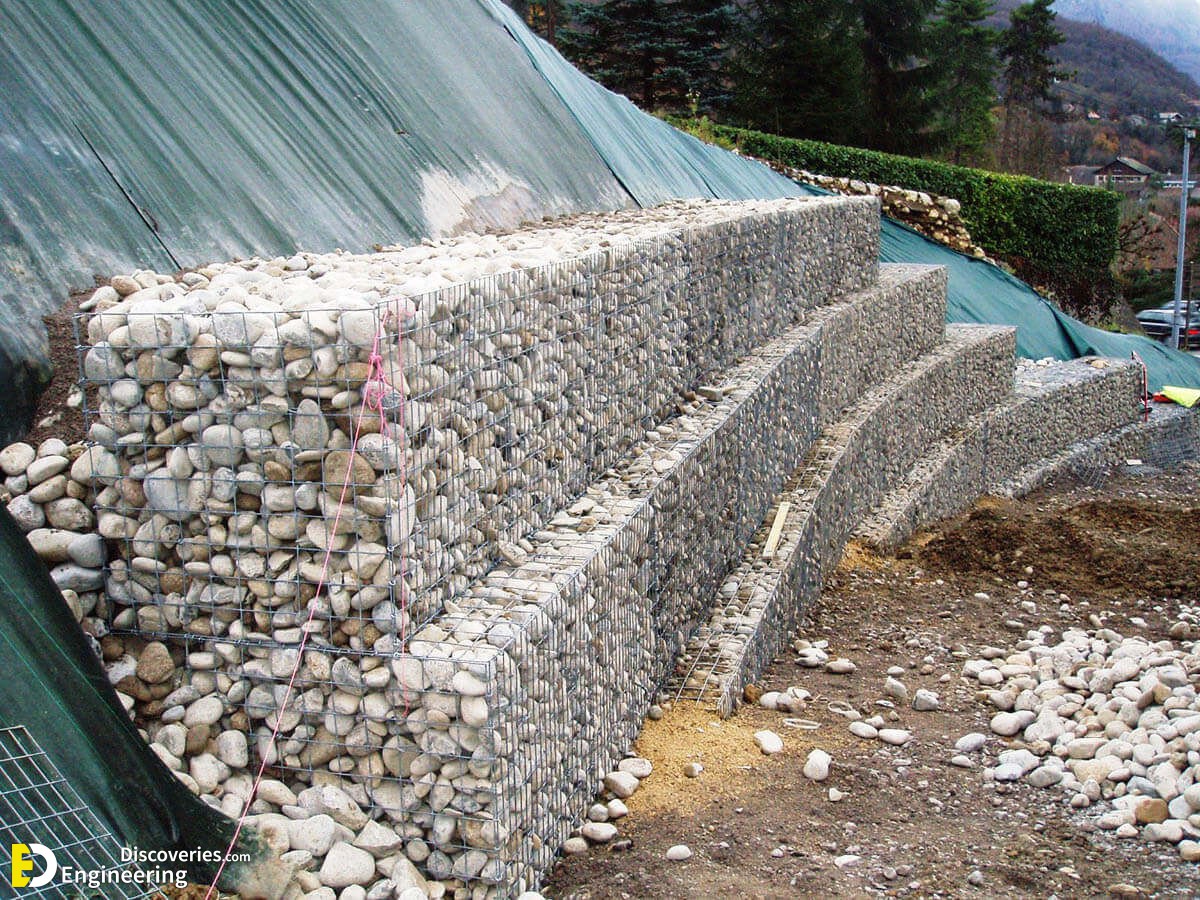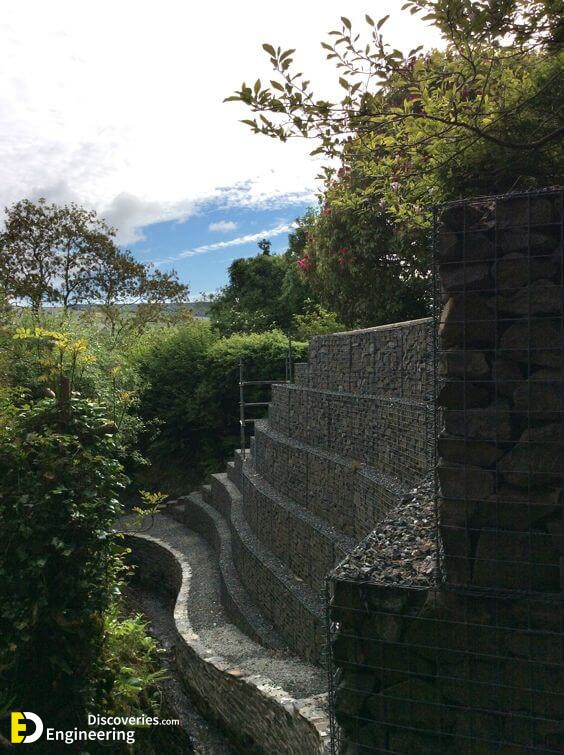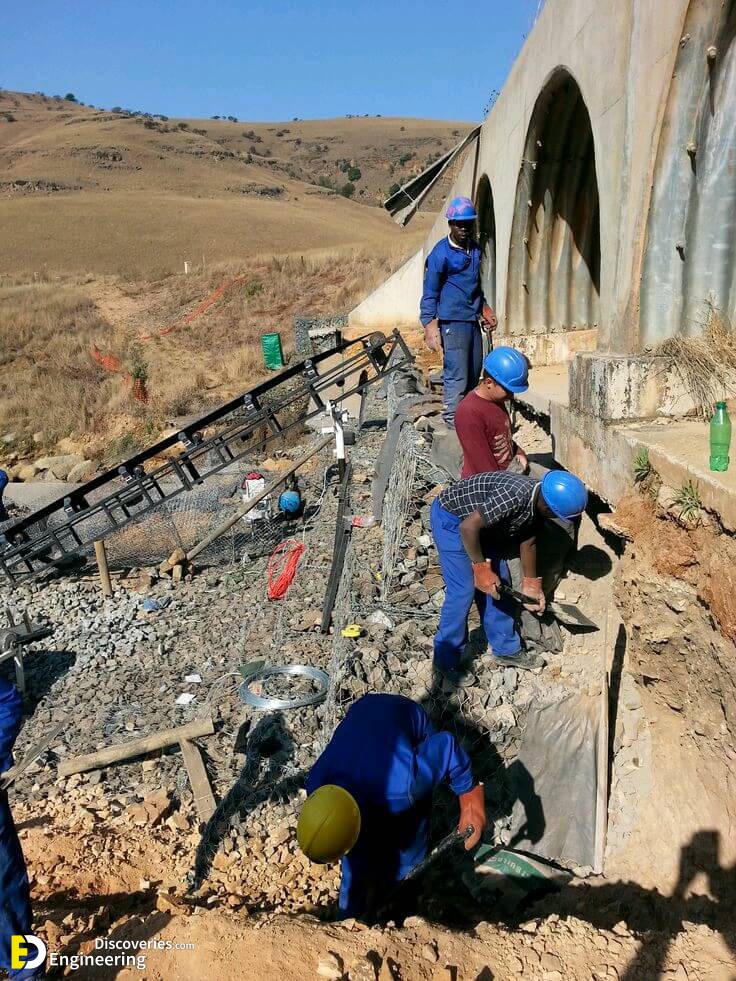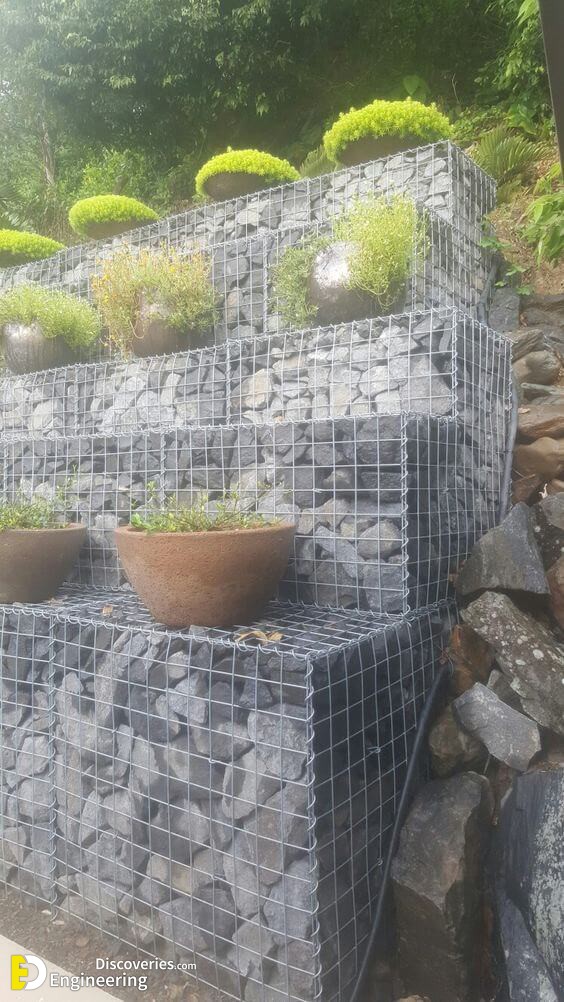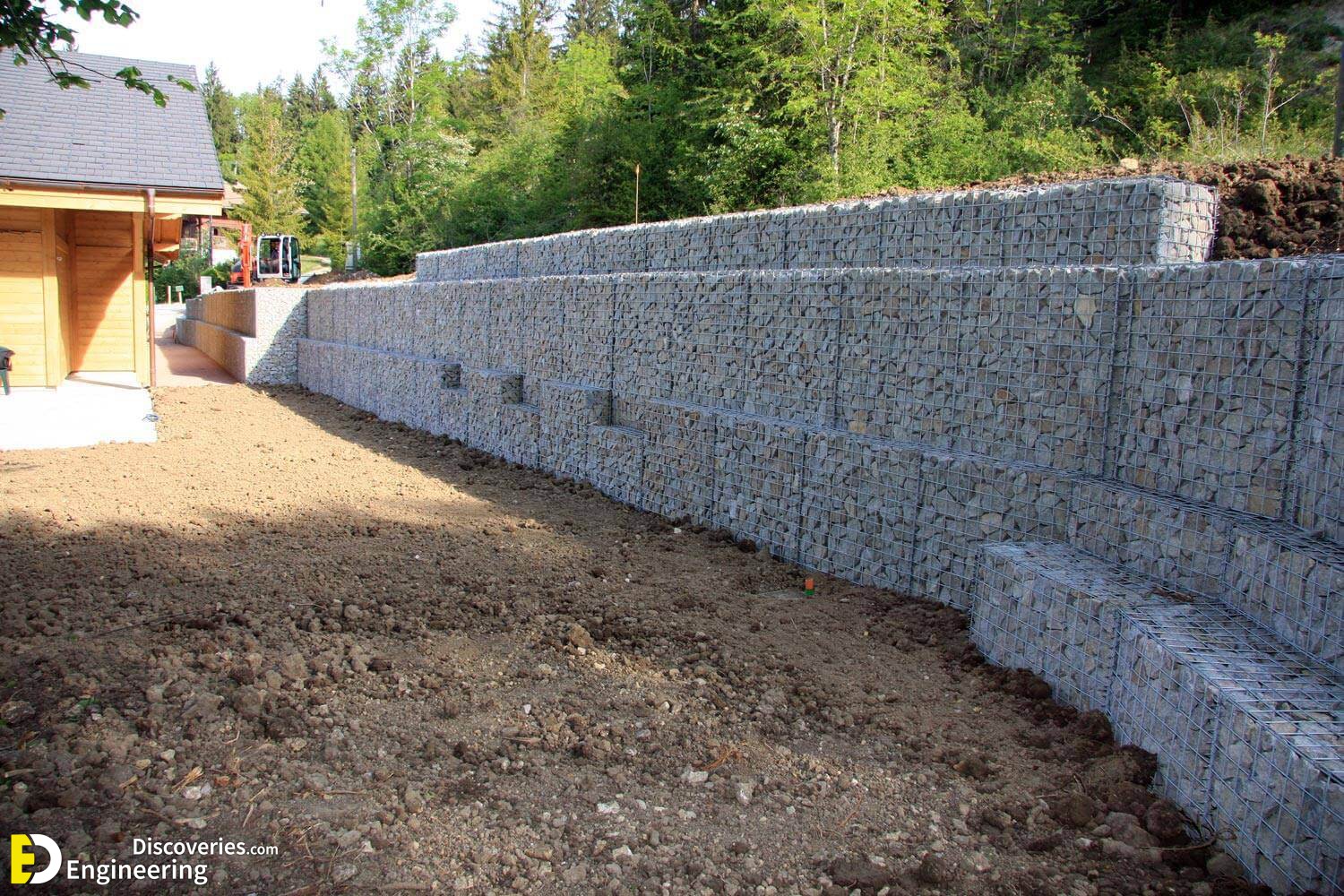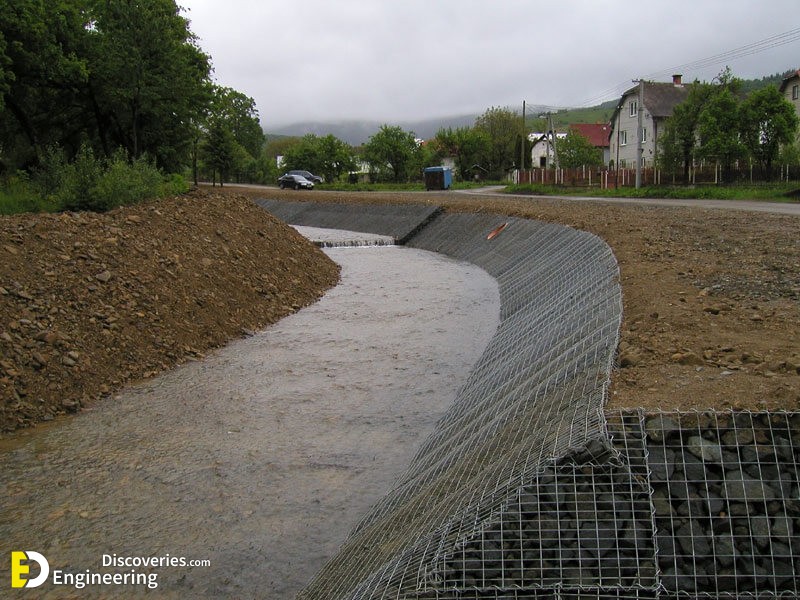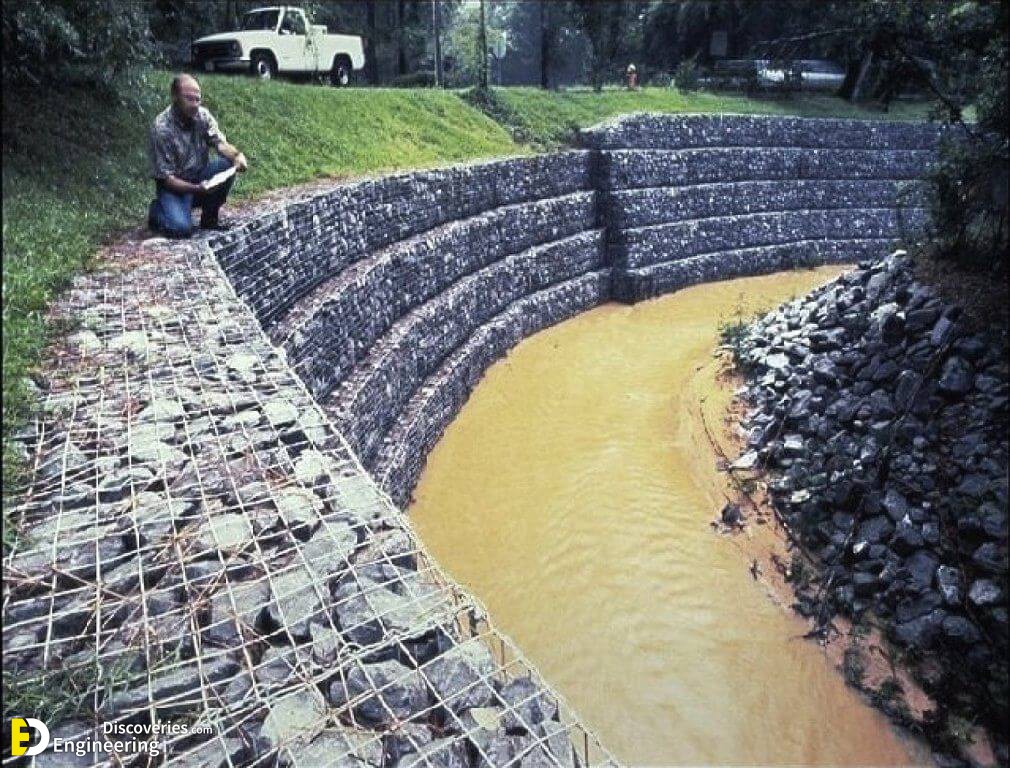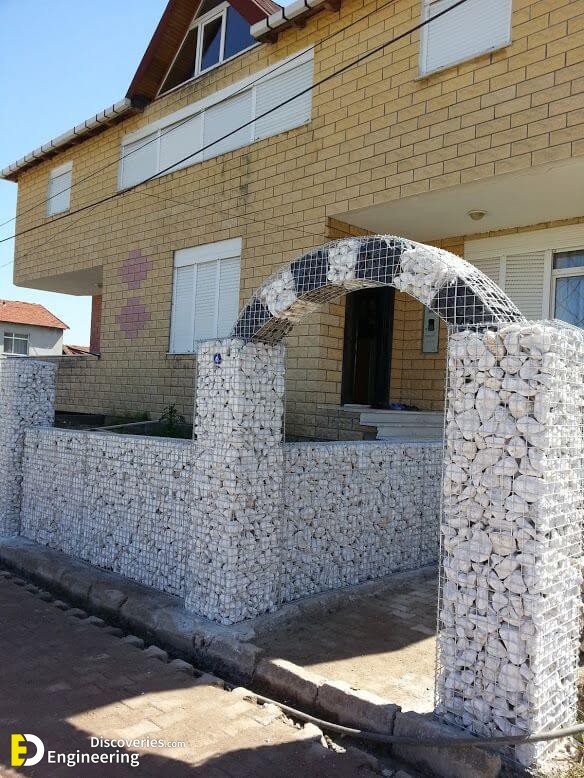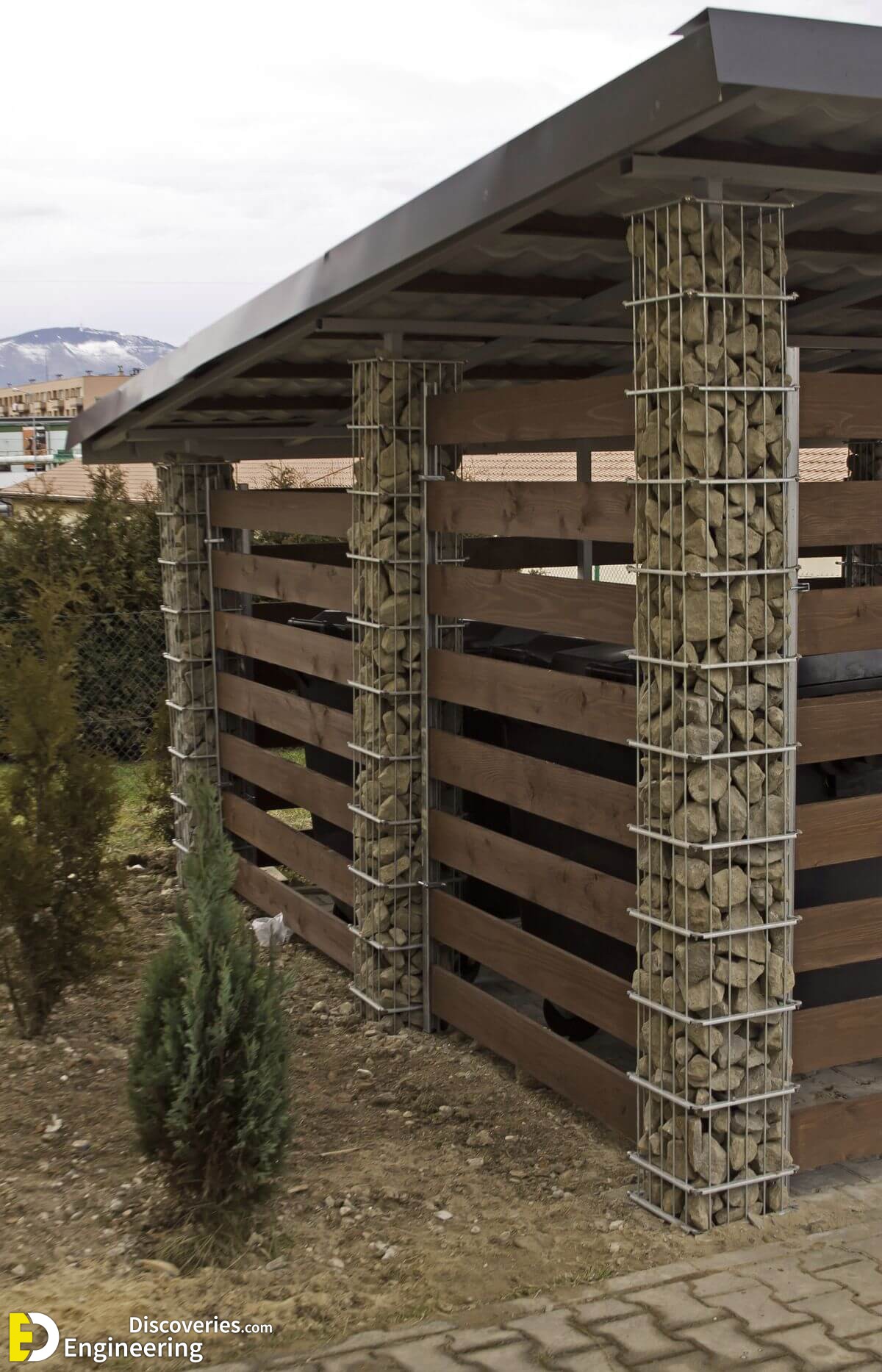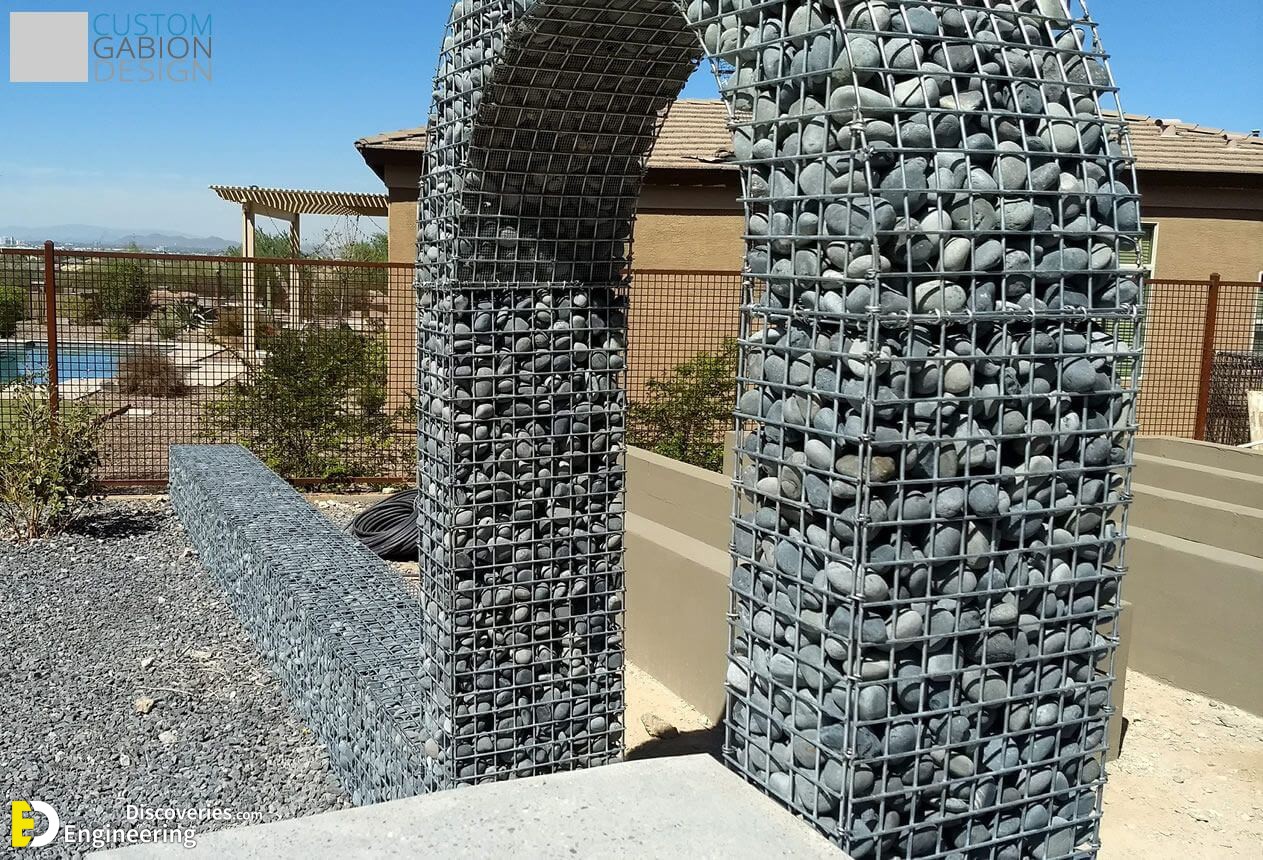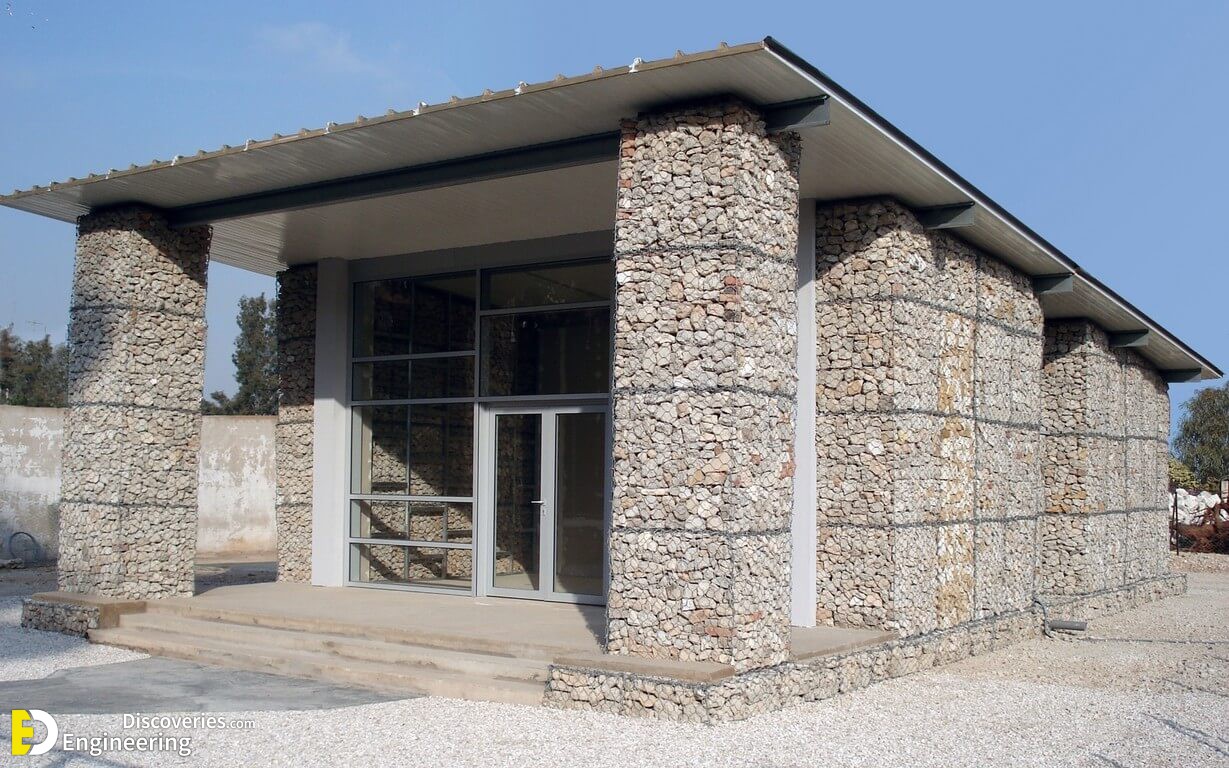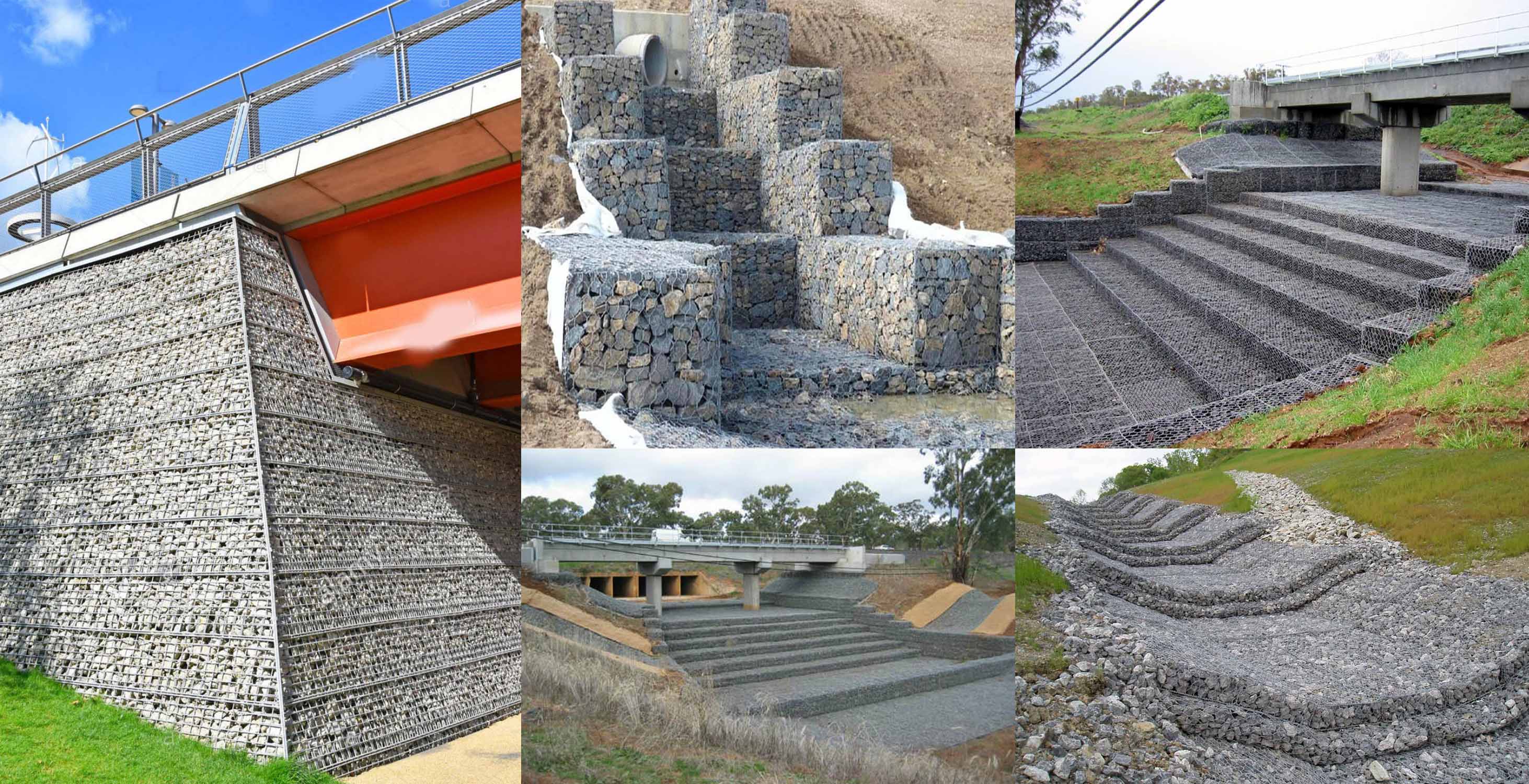
A gabion (from Italian gabbione meaning “big cage”; from Italian gabbia and Latin cavea meaning “cage”) is a cage, cylinder, or box filled with rocks, concrete, or sometimes sand and soil for use in civil engineering, road building, military applications and landscaping.
For erosion control, caged riprap is used. For dams or in foundation construction, cylindrical metal structures are used. In a military context, earth- or sand-filled gabions are used to protect sappers, infantry, and artillerymen from enemy fire.
Types of Gabions
1- Gabion baskets
2- Gabion mattresses
3- Gabion sacks
4- Gabion wire mesh
5- Decorative Gabion Elements
Applications of gabions
1- Retaining structures such as retaining walls, revetment and toe walls to embankments and cuttings.
2- Corrosion prevention structures for instance sea walls, river bank defenses, canal banks, dams, weirs, groynes and for the protection of reservoirs and lakesides.
3- cylindrical metal gabion is used for dams or in foundation construction.
4- It is employed as a noise barrier.
5- Gabions are also used as a temporary flood walls.
6- It is utilized to change the direction of the force of flood water around weak structure
7- Stepped gabions improve energy dissipation in channels.
8- Finally, it is used for aesthetic purposes
Advantages of gabions
1- Durability
Gabion has a very high resistance to atmospheric corrosion because of the well bonded zinc coating on the wire and their ability to support vegetation growth.
2- Flexibility
This feature permits the gabion to settle and deform without failure and loss of efficiency. Specifically, when unstable ground and moving water are encountered.
3- Permeability
It provides automatic and easy drainage which eliminates the need for the installation of drainage pipes.
4- Strength
Gabions are satisfactory strong that is it is capable of resisting flood force, torrential force, and ice and earth pressure.
5- Economical
It is more economical in terms of both material and labor in comparison with other gabion alternatives.
6- Environmentally friendly
Recycled materials can be placed into the gabion cage. The gaps in the soil between filling materials allow the plantation to grow over time. Gabion elements are not affected by natural phenomena.
